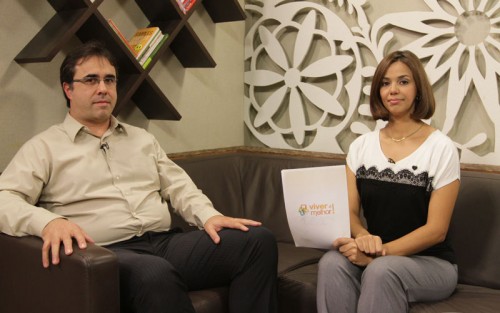
The role of the media in preventing suicide
Bruna Romera
Thursday | September 10, 2015 | 3:20 PM | Last update: September 22, 2016, 4:07 PM (Brasilia time)

A word or a discourse is rarely understood just from one perspective. When we talk about preventing suicide in the media, it is important to analyze the context and the final message of the report presented with a degree of caution, whether it is written, or broadcast on the radio or on television.
Suicide is still seen as a taboo subject by the press, due to the difficulty in approaching the matter. There is a type of consensus among those in the mainstream media that the subject is too dangerous to be openly aired, because when it is done in an undue manner the news may induce action.
There are also those who say that because suicide deals with private reasons for making an attempt on one’s own life, it has nothing to do with the proposal of journalism. But according to the World Health Organization (WHO), suicide death rates have increased 60% over the last 45 years and it is responsible for almost one million deaths per year. In view of this, the subject becomes equally worrying and is of social interest and that goes far beyond being a problem of a merely personal nature.
It is these interests and facts that the press should also be talking about. Journalism builds the collective imaginary; it can promote the continuation of taboos as well as suggest new forms of understanding such happenings and contribute towards changing them. According to the WHO, it is estimated that 90% of the cases can be avoided when help is offered.
“A word can save a life. A word can lose a life.”
Under the aegis of the responsibility of these words that were uttered by the late founder of the Legion of Good Will (LBV), Alziro Zarur (1914-1979), every day the Super Good Will Communications Network1— initially set up in Brazil in the 1940s with the purpose of producing communication directed at human beings and their eternal Spirit— addresses topics aimed at valuing life. Through Education with all-encompassing Ecumenical Spirituality*2, it applies the LBV’s teaching method in all its radio and television programs and also in its printed material and on the Internet, the aim being to contribute to the full development of human beings.
As for preventing suicide, the Good Will communication addresses the possible reasons and the physical, social, emotional, and spiritual consequences of taking one’s life in order to comfort the audience given the dramas it faces, and shows that committing this act will not put an end to personal problems. On the contrary, with the prospect of the eternity of Life, the individual will create greater problems for themselves, for their family, and for the society in which they live. Journalist José de Paiva Netto, President of the LBV, warns that “suicide is a blow to the Soul. Don’t give up on Life.”
Messages like this one are presented in a fraternal and all-encompassing ecumenical way, with words that strengthen self-esteem, hope, and faith (respecting the religious or philosophical traditions of people), and by way of prayers that are broadcast every hour in its radio and TV programs.

To Live is Better! is one of the programs we can highlight that features various specialists, mainly from the health area, and that disseminates educational and preventive information to people. In Brazil, for example, it was found that 90% of the cases of suicide are related to mental illnesses, according to data from the Brazilian Psychiatric Association (ABP). As a result, the program frequently talks about illnesses like schizophrenia, bipolar disturbance, depression, and borderline personality disorder, always stressing their relationship with suicide and the risks associated with them. The program also warns about the consequences of other actions that are considered to be a form of indirect suicide, such as drug use, alcohol dependence (and consequent deaths at the wheel), the abusive use of medication, and eating disorders, both morbid obesity and anorexia and bulimia.
There are, therefore, countless ways of breaking down the subject and making it recurrent in the media. The question is making it a social responsibility practice in these vehicles. The WHO already provides a manual of recommendations as to how professionals from the area must approach the subject; in addition to the statistics, we mainly need to show ways of preventing suicide and of treating it. Let’s us put the taboo aside and present this topic to society in a responsible way so we can promote a healthy discussion on the subject.
___________________________
¹Super Good Will Communications Network — The term refers to the vehicles of communication 100% Jesus, whose purpose is to propagate the fraternal ideals of Ecumenism without restrictions: Super Good Will Radio Network, Boa Vontade TV, Rede Educação e Futuro de Televisão – Reeducar [Education and Future Television Network – Re-educate], Good Will Portal, and publications of Ecumenical Spirituality.
²Ecumenical Spirituality — This banner of the Legion of Good Will is present in all its social and educational actions, because it is understood as “the cradle of the most generous values that are born of the Soul; the dwelling of the emotions and of the reasoning enlightened by intuition; the atmosphere that embraces everything that transcends the ordinary field of matter and comes from the elevated human sensitivity, such as Truth, Mercy, Morals, Ethics, Honesty, Generosity, and Brotherly Love.” Extract taken from the book É Urgente Reeducar! [It is Urgent to Re-educate!], which is the fundament of the LBV’s educational proposal, written by educator Paiva Netto, a best-selling author.

